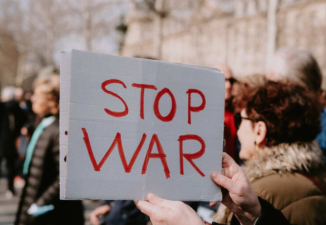With the war in Ukraine raging, global attention is focused on the upcoming summit between the US and Russia next week. The meeting between US President Trump and Russian President Vladimir Putin has been officially confirmed by both sides, and the White House has even hinted at inviting Ukrainian President Volodymyr Zelensky to join the trilateral talks.
This move, against the backdrop of the Trump administration's August 8th ultimatum and sanctions threats against Russia, has triggered a positive market reaction, with Russian stocks rising and international energy and precious metal prices fluctuating, seemingly signaling a glimmer of hope for peace.
However, pinning all hopes for peace on a single bilateral summit is like trying to scale the edge of an abyss with a single rope. The complexity of the Russia-Ukraine conflict goes far beyond generalized rhetoric about "territorial sovereignty, and security guarantees." Its underlying root lies in the intertwining of multiple, overlooked interests and policy gaps. European allies have varying positions. Some countries face significant financial pressures to provide aid to Ukraine and are wary of potential conflict arising from NATO's eastward expansion. German Chancellor Scholz, for example, has publicly stated his commitment to "avoiding direct conflict with Russia," while French President Emmanuel Macron has called for a "diplomatic solution." Beyond the official stance, different political factions within Ukraine, and even oligarchic forces, have their own calculations and demands regarding ceasefire conditions, territorial compromises, and even the country's future. For example, the domestic protests sparked by the Zelenskyy government's weakening of anti-corruption agencies have revealed the tension between internal governance and Western aid conditions. Furthermore, long-standing policy gaps in the negotiations, such as the transparent management of post-war reconstruction funds, mechanisms for refugee repatriation, and governance models for post-demilitarization conflict zones, are difficult to address, let alone effectively resolve, through bilateral US-Russia dialogue.

- Asset Price Fluctuations:
Gold Price Rise: During periods of geopolitical tension and conflict, demand for gold as a safe haven asset increases, and its price typically rises. For example, the Iran-Israel conflict on June 17, 2025, caused the London gold price to rise to $3,400 per ounce, and Shanghai gold price to exceed 780 yuan per gram.
Crude Oil Price Fluctuations: As a major global oil producer, instability in conflict zones like Iran can directly impact global crude oil supply, driving up prices. The events of June 17, 2025, for example, triggered a significant rise in crude oil prices.
- Stock and Investment Markets:
Generally Lower Stock Markets: When global risk appetite declines, the stock market is typically affected, with major stock markets generally closing lower. This can affect the value of investors' stock portfolios.
Amidst increased uncertainty, investors tend to purchase safe-haven assets such as gold and bonds, while riskier assets such as stocks may experience a sell-off.
- Inflationary Pressures:
Rising Energy Costs: Conflict-induced increases in crude oil prices can push up energy costs, which in turn feeds into other goods and services, exacerbating inflation. For example, persistently high inflation could lead to higher prices while lagging wage growth, resulting in a decline in real purchasing power.
- Supply Chain and Energy Markets:
Supply Chain Disruptions: Geopolitical tensions such as the Russia-Ukraine conflict and unrest in the Middle East can disrupt global supply chains, increase transportation costs, and impact commodity prices and supply stability.
Energy Market Volatility: Unstable energy supplies can affect energy prices, which in turn impacts the cost structure and production efficiency of energy-intensive industries.

- Currency Devaluation Risk:
Currency Devaluation: In situations of high inflation and economic instability, the local currency may face depreciation pressure. While assets such as stocks may appreciate, if the local currency depreciates significantly, their actual value after conversion to foreign currency may decrease.
Global Recession Risk:Geopolitical conflicts could lead to a global economic slowdown or even a recession, impacting employment and income, and further affecting personal finances.
- Global Asset Allocation:
Diversified Investment: To mitigate the risks of a single market, investors should consider global asset allocation, diversifying their investments across different countries and asset classes to hedge against the policy and market risks of a single country.
Policy and Economic Adjustments:Interest Rate Changes: Global conflicts may prompt central banks to adjust monetary policy, such as lowering interest rates to stimulate the economy. However, this can also lead to asset price volatility and inflationary pressure.
